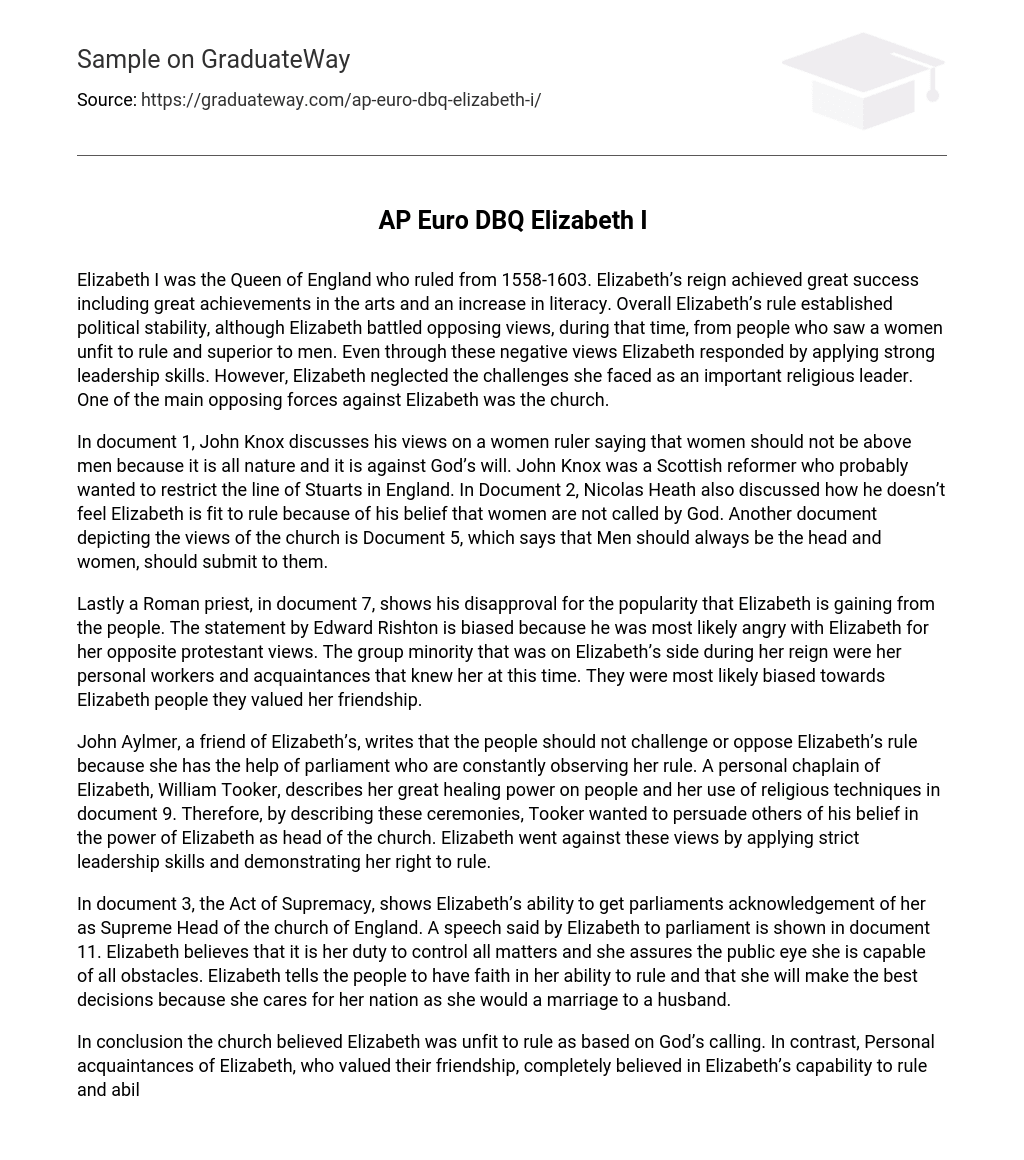Elizabeth I, the Queen of England from 1558-1603, achieved remarkable success in her reign. Her reign was marked by significant achievements in the arts and a rise in literacy. Despite facing opposition from those who believed women were unfit to rule and superior to men, Elizabeth established political stability through her strong leadership skills. However, she did not adequately address the challenges she faced as a prominent religious leader. The church emerged as one of the primary forces opposing Elizabeth.
In document 1, John Knox expresses his belief that women should not hold a higher position than men as it goes against the natural order and God’s intentions. As a Scottish reformer, Knox likely sought to limit the influence of the Stuart dynasty in England. Nicolas Heath echoes this sentiment in document 2, asserting that he does not consider Elizabeth fit to rule due to his belief that women are not called by God for such roles. Document 5 further reinforces the church’s stance on gender roles, stating that men should always be in a position of leadership while women should submit to them.
Last in document 7, a Roman priest expresses his disapproval of the growing popularity Elizabeth is receiving from the people. The biased statement from Edward Rishton could be attributed to his likely anger towards Elizabeth due to her opposing Protestant beliefs. The smaller group who supported Elizabeth during her rule consisted of her personal employees and acquaintances who knew her during this period. It is highly probable that their bias towards Elizabeth was influenced by the value they placed on her friendship.
John Aylmer, a friend of Elizabeth’s, states that it is not advisable for the people to question or resist Elizabeth’s rule since she has the support of parliament, who closely monitor her governance. In document 9, William Tooker, Elizabeth’s personal chaplain, highlights her remarkable ability to heal people and her utilization of religious practices. Consequently, Tooker aims to convince others of Elizabeth’s authority as the leader of the church through his account of these rituals. However, Elizabeth contradicted these perceptions by implementing strong leadership abilities and asserting her rightful reign.
In document 3, Elizabeth’s Act of Supremacy demonstrates her skill in securing the acknowledgement of Parliament as the Supreme Head of the Church of England. Document 11 features a speech given by Elizabeth to Parliament, in which she declares her responsibility to govern all matters and assures the public that she is capable of overcoming any obstacles. Elizabeth urges the people to trust in her leadership and promises to make the best decisions for the nation, as she would for a husband in a marriage.
In conclusion, the church doubted Elizabeth’s fitness to rule, citing God’s calling. However, Elizabeth’s personal acquaintances, who valued their friendship with her, had complete faith in her ability to govern and improve England. Elizabeth countered the negativity by defending her beliefs and asserting her authority as a female monarch. She exerted great effort to demonstrate her competence in both political and religious spheres.





